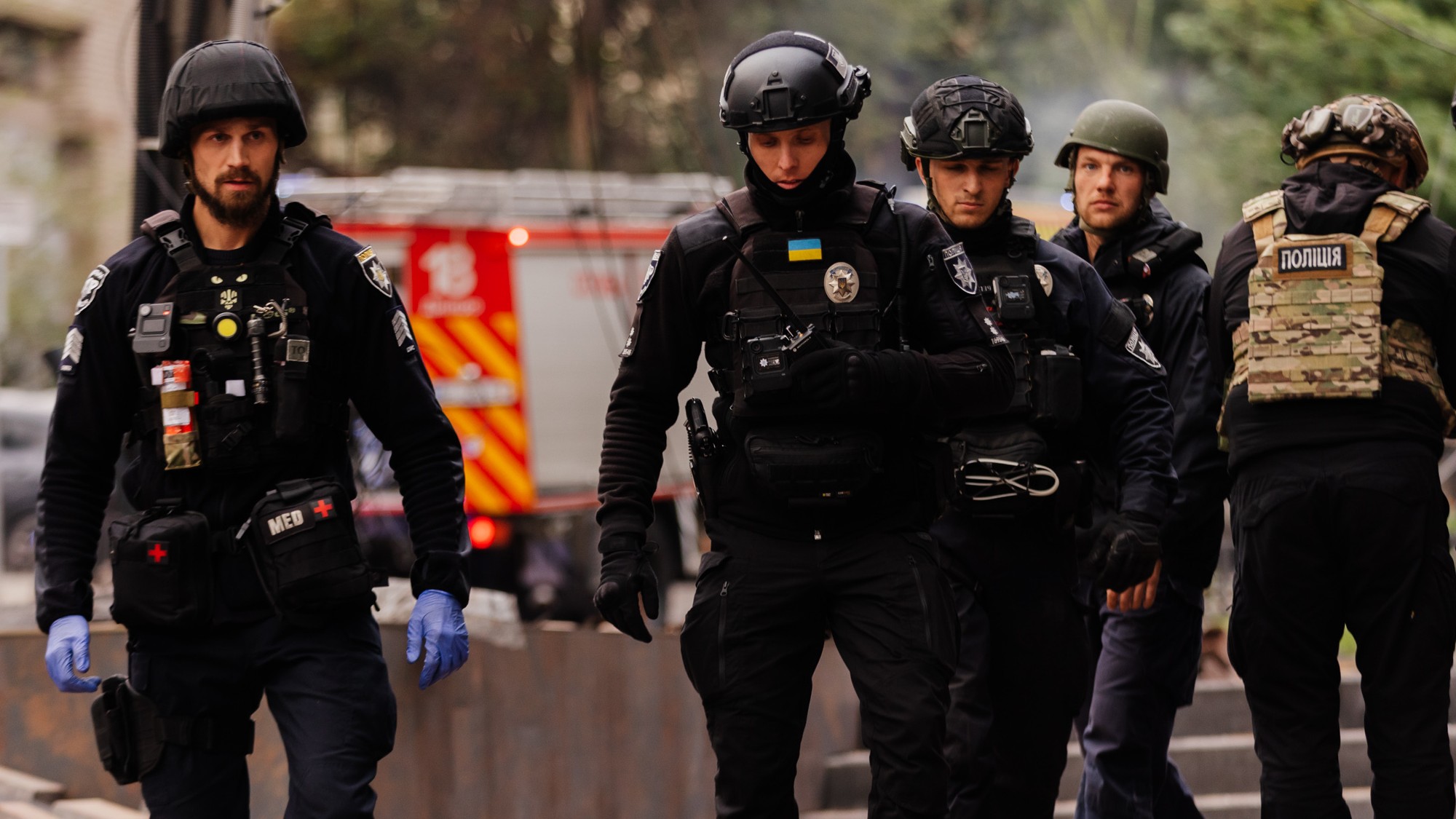Russia: already at war with Europe?
As Kremlin begins ‘cranking up attacks’ on Ukraine’s European allies, questions about future action remain unanswered

A free daily email with the biggest news stories of the day – and the best features from TheWeek.com
You are now subscribed
Your newsletter sign-up was successful
“Russia is at war with Europe,” said Ivo Daalder on Politico. It has been attacking Ukraine for over a decade now, “with increasing ferocity since its full-scale invasion in 2022”. Now, though, it is increasingly waging a “wider war”. Until recently, European nations have preferred to see Moscow’s operations – “the assassinations, cyberattacks, sabotage of critical infrastructure, disinformation campaigns” as falling into “a grey zone beneath the level of armed conflict”.
But over the past month, its escalating incursions have become hard to ignore. Russian drones have been launched at Poland and Romania. Fighter jets have invaded Estonian airspace. Russian aircraft have buzzed a German frigate in the Baltic. Unidentified drones have brought Danish airports to a standstill. Europe’s leaders are slowly starting to recognise the reality. “We are not at war,” said Germany’s chancellor, Friedrich Merz, this week, “but we are no longer at peace either.”
‘Systematic disruption’
“Russia’s aim is to sow division,” said Edward Lucas in The Times. It is in “some difficulty” in Ukraine. Its offensive has stalled. Ukrainian drone strikes on Russian refineries are causing fuel shortages and growing economic pain (VAT is set to rise). But instead of coming to the table, Vladimir Putin is “cranking up attacks on Ukraine’s European backers”. He hopes that “systematic disruption” will convince many Europeans that the price of helping Ukraine is too high. Sending jets into Nato airspace is designed “to plant corrosive, highly specific dilemmas in our minds”. Are we really willing to risk war with Russia over a sliver of northern Estonia? Would the US back up its Nato allies? Until it meets solid resistance, Russia “will seek to intimidate us”.
The Week
Escape your echo chamber. Get the facts behind the news, plus analysis from multiple perspectives.

Sign up for The Week's Free Newsletters
From our morning news briefing to a weekly Good News Newsletter, get the best of The Week delivered directly to your inbox.
From our morning news briefing to a weekly Good News Newsletter, get the best of The Week delivered directly to your inbox.
Still, it’s hard to calibrate the response, said Taz Ali in The Independent. It’s one thing for Poland, with its large air force, to promise to shoot down any Russian jet in its airspace. But are the Italian fighters patrolling the Baltic really going to call Putin’s bluff?
‘Invoking war’?
Russian subversion and sabotage certainly pose a threat, said Mark Galeotti in The Spectator. But is the situation “apocalyptic” enough to merit the word “war”? So far, the main costs to Europe’s nations have been “airport delays” and “essentially trivial Russian airspace violations”. The truth is that both Russian and Western leaders are “invoking war” for political ends.
In Russia, as the economic costs begin to mount, claiming that the nation is at war with Nato helps to make sacrifices more “palatable”. It’s the same story in the rest of Europe. It’s clear that Donald Trump expects Europeans to foot the bill for Ukraine’s conflict. The talk of war makes it easier to “accept the price to be paid”.
A free daily email with the biggest news stories of the day – and the best features from TheWeek.com
-
 How the FCC’s ‘equal time’ rule works
How the FCC’s ‘equal time’ rule worksIn the Spotlight The law is at the heart of the Colbert-CBS conflict
-
 What is the endgame in the DHS shutdown?
What is the endgame in the DHS shutdown?Today’s Big Question Democrats want to rein in ICE’s immigration crackdown
-
 ‘Poor time management isn’t just an inconvenience’
‘Poor time management isn’t just an inconvenience’Instant Opinion Opinion, comment and editorials of the day
-
 Witkoff and Kushner tackle Ukraine, Iran in Geneva
Witkoff and Kushner tackle Ukraine, Iran in GenevaSpeed Read Steve Witkoff and Jared Kushner held negotiations aimed at securing a nuclear deal with Iran and an end to Russia’s war in Ukraine
-
 ‘The forces he united still shape the Democratic Party’
‘The forces he united still shape the Democratic Party’Instant Opinion Opinion, comment and editorials of the day
-
 Kurt Olsen: Trump’s ‘Stop the Steal’ lawyer playing a major White House role
Kurt Olsen: Trump’s ‘Stop the Steal’ lawyer playing a major White House roleIn the Spotlight Olsen reportedly has access to significant US intelligence
-
 Trump’s EPA kills legal basis for federal climate policy
Trump’s EPA kills legal basis for federal climate policySpeed Read The government’s authority to regulate several planet-warming pollutants has been repealed
-
 House votes to end Trump’s Canada tariffs
House votes to end Trump’s Canada tariffsSpeed Read Six Republicans joined with Democrats to repeal the president’s tariffs
-
 Bondi, Democrats clash over Epstein in hearing
Bondi, Democrats clash over Epstein in hearingSpeed Read Attorney General Pam Bondi ignored survivors of convicted sex offender Jeffrey Epstein and demanded that Democrats apologize to Trump
-
 ‘The mark’s significance is psychological, if that’
‘The mark’s significance is psychological, if that’Instant Opinion Opinion, comment and editorials of the day
-
 Judge blocks Trump suit for Michigan voter rolls
Judge blocks Trump suit for Michigan voter rollsSpeed Read A Trump-appointed federal judge rejected the administration’s demand for voters’ personal data